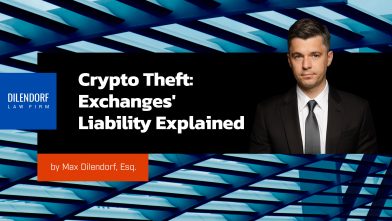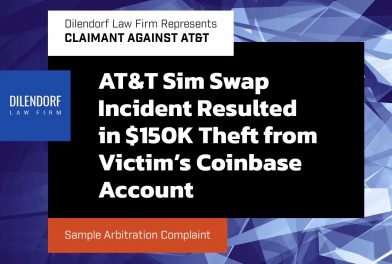Why Canadians Should Avoid LLCs When Buying U.S. Real Estate
In the years following the Great Recession, foreign buyers from around the world began heavily investing in U.S. real estate. For much of that time, the Chinese were the predominant force in international purchases. But since the imposition of capital controls by the Chinese government earlier this year, Canadians have taken the top spot in the rankings.
Many Canadians who buy real estate in the U.S. and, in particular, New York City – do so through U.S. limited liability companies (LLCs), following advice that is widely available on the Internet. This is generally a bad idea, because investors from Canada are subject to special tax provisions in their home country that result in double taxation if real estate in the U.S. is owned through an LLC.
The U.S. Internal Revenue Service (IRS) taxes LLCs as pass-through entities, in which each owner pays the tax on his or her share of the company’s income. But the Canada Revenue Agency (CRA) considers LLCs to be nonresident corporations, taxing distributions from the company as dividends. This mismatch in treatment often disqualifies the Canadians from obtaining foreign tax credit, subjecting unwary investors to double taxation at rates of up to 75%.
Accordingly, Canadians should avoid using LLCs for their U.S. real estate investments. Instead, other ownership structures can be deployed to avoid the problem of double taxation.
General Advantages of LLCs
International buyers are often right to conclude that an LLC offers the best structure for investments in U.S. real estate.
Like corporations, LLCs limit the liability of their owners (called “members”) for the debts and obligations of the business entity. A creditor of a corporation or LLC can normally only seek recovery from the corporation or LLC itself, but not from its shareholders or members.
Second, LLCs can take advantage of beneficial tax treatment in the United States. By default, an LLC with only one member is disregarded for tax purposes. That is, the sole member in a single-member LLC reports and pays tax on the income of the LLC as if he or she were receiving the income directly. Distributions from the LLC to the member are income-tax free.
Similarly, an LLC with more than one member is taxed as a partnership by default. Partnerships are taxed on a pass-through basis. Each member pays tax on his or her share of the LLC’s income at his or her individual marginal rate. As with a disregarded LLC, distributions to the members are not taxed.
Pass-through taxation (or taxation as a disregarded entity) eliminates the double-tax regime to which U.S. corporations are normally subject. When a corporation earns income, that income is first taxed to the corporation at accelerated corporate rates. Then, when the corporation distributes its earnings to its shareholders, the shareholders pay income tax on those dividends.
Finally, LLCs formed under the laws of some states can protect the privacy of their members. For example, individuals buying real estate in New York City commonly choose to do so through an LLC formed in New York or Delaware. Neither state requires the identity of an LLC’s members to be disclosed in the LLC formation documents, which become public records.
LLCs and Double Taxation
Although Canadians can benefit from the advantages of LLCs as much as anyone else, Canadian law imposes one major disadvantage for Canadian members of U.S. LLCs: a risk of double taxation.
Both the United States and Canada tax the worldwide income of their citizens and residents. For nonresidents, each nation taxes only the income earned there. For example, when a Canadian earns U.S.-source income, he or she is subject to taxation on that income by both the United States and Canada.
In many cases, this double taxation has been eliminated by the U.S.-Canada Income Tax Treaty and domestic law, which provide for tax credits to address double taxation on income earned in one nation by residents of the other.[1] Accordingly, the treaty and Canadian law allow a foreign tax credit for U.S. income taxes paid by a Canadian taxpayer.[2]
To qualify for the foreign tax credit in Canada, a taxpayer must have paid a foreign tax on income for the same year for which the credit is claimed.[3] This presents a problem for Canadian-owned LLCs.
The CRA considers LLCs to be nonresident corporations, even if the LLC is disregarded or taxed as a partnership by the IRS. [4] Consequently, U.S.-source income earned by the LLC is not subject to tax in Canada, and distributions from the LLC to a Canadian member are subject to tax as a dividend.[5]
This disparate treatment poses a problem when income from an LLC is not distributed to the Canadian member in the same year when it is taxed by the United States. As noted above, the foreign tax credit must be taken for the same year with respect to which the foreign tax was paid; it cannot be carried forward into subsequent tax years.[6]
As a result, without careful planning, the income of a U.S. LLC with a Canadian member can be taxed twice: once by the United States when it is earned, and once by Canada when it is distributed to a Canadian member. This risk makes LLCs a tax-inefficient structure for Canadian investors.
An Alternative to LLCs: U.S. Limited Partnerships
Because of the disadvantages imposed by Canada’s tax laws on LLCs, Canadians should instead form a U.S. limited partnership (LP) to own their U.S. real estate. LPs offer many of the same legal advantages as LLCs, but minimize the risk of double taxation.
An LP is a type of partnership consisting of one general partner and one or more limited partners. The general partner exercises control over the LP and has unlimited liability for the debts and obligations of the LP. In contrast, the limited partners are passive investors who do not exercise control over the LP, but enjoy limited liability.
By default, the IRS taxes LPs as pass-through entities, and the CRA also taxes LPs on a pass-through basis.[7] Accordingly, a Canadian who pays income taxes to the United States on income earned by a U.S. LP can qualify for Canada’s foreign tax credit when he or she reports that income to the CRA.
Strategies for Investing Through an LP
When forming an LP in the United States, Canadians should keep the following in mind.
If, for example, a Canadian investor is buying a property in New York City, he or she should choose to form their LP under New York or Delaware law. As with members in an LLC, both states protect the privacy of the LP’s limited partners. However, this is not true for the general partner, as each state requires the general partner’s name and address to be included in the certificate of limited partnership.
Because of this, and because of the general partner’s unlimited liability, an investor should form a second business entity—preferably an LLC—to serve in that role. The general partner should be given a nominal partnership interest of 1% or less. Although this LLC will still suffer the risk of double taxation, the income potentially subject to double tax will be greatly reduced.
Finally, investors must not confuse an LP with the similarly named limited liability partnership (LLP) or limited liability limited partnership (LLLP). The CRA announced in 2015 that it will classify U.S. LLPs and LLLPs as nonresident corporations for income-tax purposes, leading to the same problems as exist for U.S. LLCs.
Conclusion
As Canadians become the dominant force in international purchases of U.S. real estate, they must be mindful of the special tax issues that apply to their investments. The tax rules regarding cross-border investments are complex, and improper planning can lead to double taxation of income at rates of more than 75%.
About Dilendorf Khurdayan PLLC. Our firm represents individuals, families and private funds across a wide range of U.S. real estate transactions including purchases, sales and leasing, construction, development, financing and joint ventures. We also work closely with non-U.S. residents looking to invest in the U.S., relocate their families to the U.S., expand business into the U.S. or pass wealth to the U.S. beneficiaries. We use our expertise in U.S. taxation, corporate law and cross-border transactions to structure inbound direct investments that are tax efficient and provide advice on FATCA, FIRPTA, CRS compliance, PFIC rules and CFC rules.
Max Dilendorf has more than 12 years of combined legal, finance and investment advisory experience in the commercial and residential real estate industry in New York and works with a diverse group of clients – owners, investors, developers, funds, tenants, landlords, lenders and property managers. A major aspect of Max’s practice involves advising foreign investors on effective real estate holding structures and tax consequences in connection with ownership, operation and transfers of U.S. real property interests.
Rika Khurdayan focuses on representing and advising foreign businesses and families in connection with holding structures, cross-border transactions, business operations and investment strategies. Major aspect of Rika’s practice involves counsel to high-net-worth individuals, families and investment funds in connection with optimal investment and holding structures for U.S. inbound transactions, tax-advantaged transfers of assets, pre-immigration tax strategies and acquisition, ownership and management of luxury assets, including real estate.
RESOURCES
[1] United States-Canada Income Tax Convention, U.S.-Can., art. XXIV, ¶ 2, Sep. 26, 1980.
[2] Canada Income Tax Act § 126(1), R.S.C., c. 1 (1985).
[3] Id.; C.R.A. T.I. 2015-0601781E5.
[4] C.R.A. T.I. 2015-0601781E5.
[5] C.R.A. T.I. 2011-0428781E5.
[6] C.R.A. T.I. 2015-0601781E5.
[7] C.R.A. I.T.T.N. No. 34 (Apr. 27, 2006).
- Tax Disclaimer: The information contained herein is general in nature and based on authorities that are subject to change. We do not guarantee neither the accuracy nor completeness of any information and is not responsible for any errors or omissions, or for results obtained by others as a result of reliance upon such information. We assume no obligation to inform the reader of any changes in tax laws or other factors that could affect information contained herein. This publication does not, and is not intended to, provide legal, tax or accounting advice, and readers should consult their tax advisors concerning the application of tax laws to their particular situations.
- Circular 230 Disclosure: This analysis is not tax advice and is not intended or written to be used, and cannot be used, for purposes of avoiding tax penalties that may be imposed on any taxpayer.












